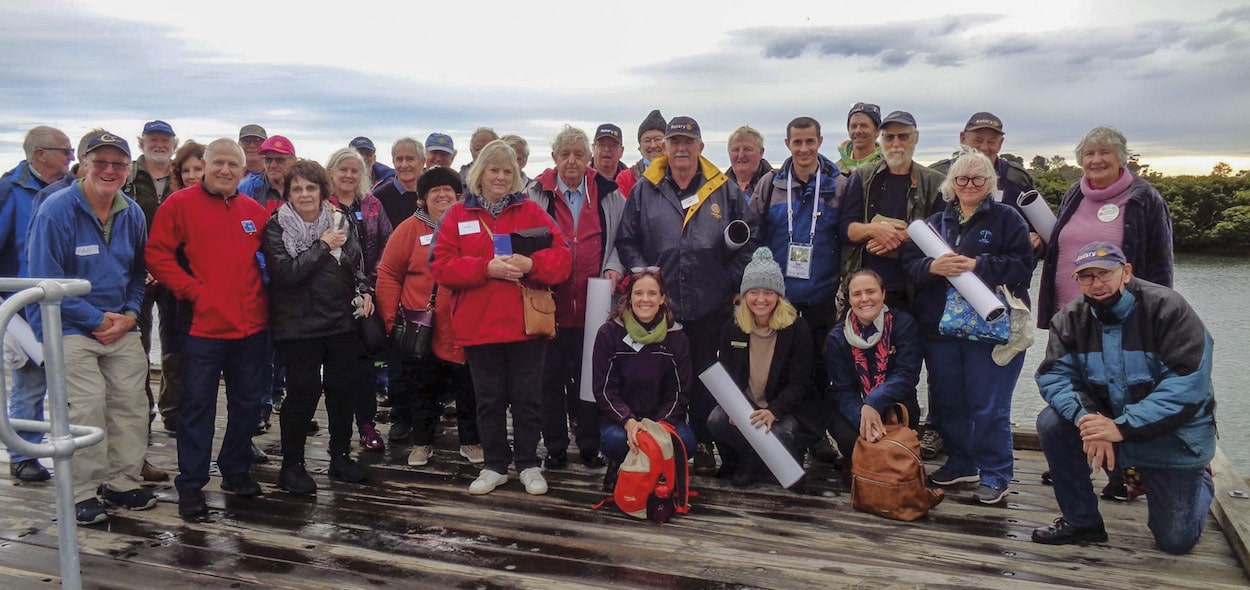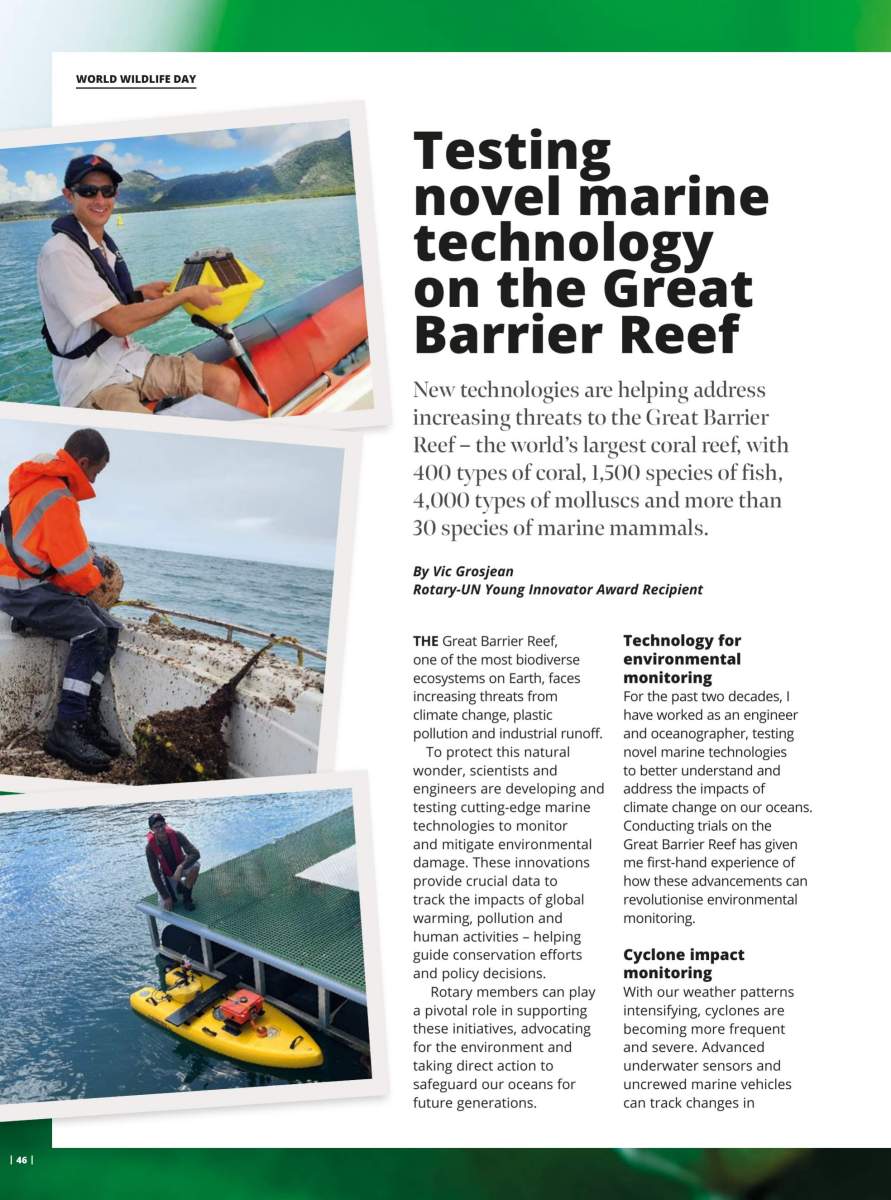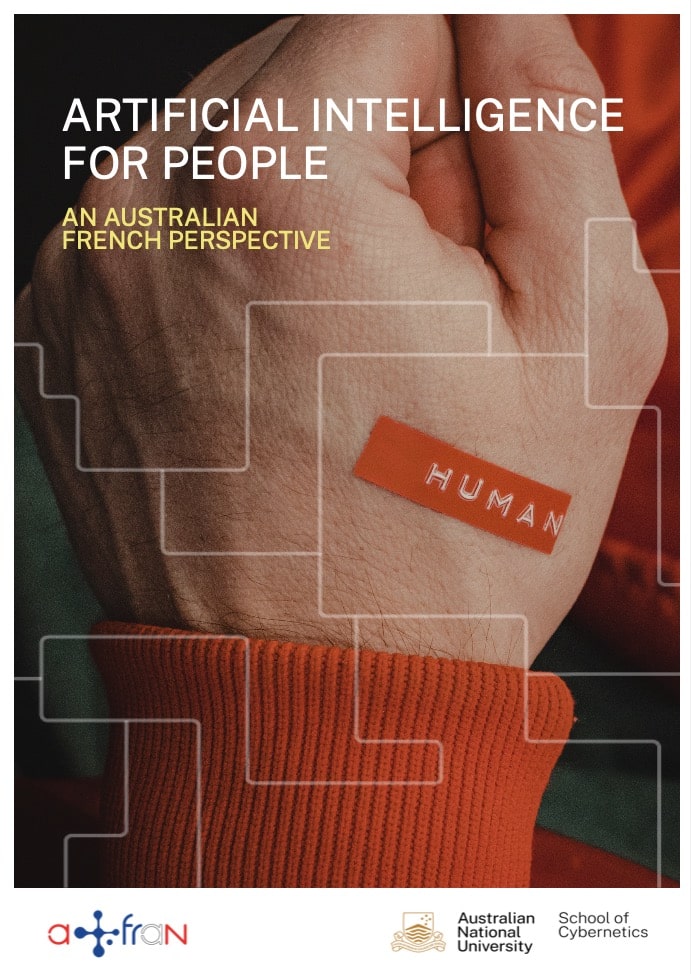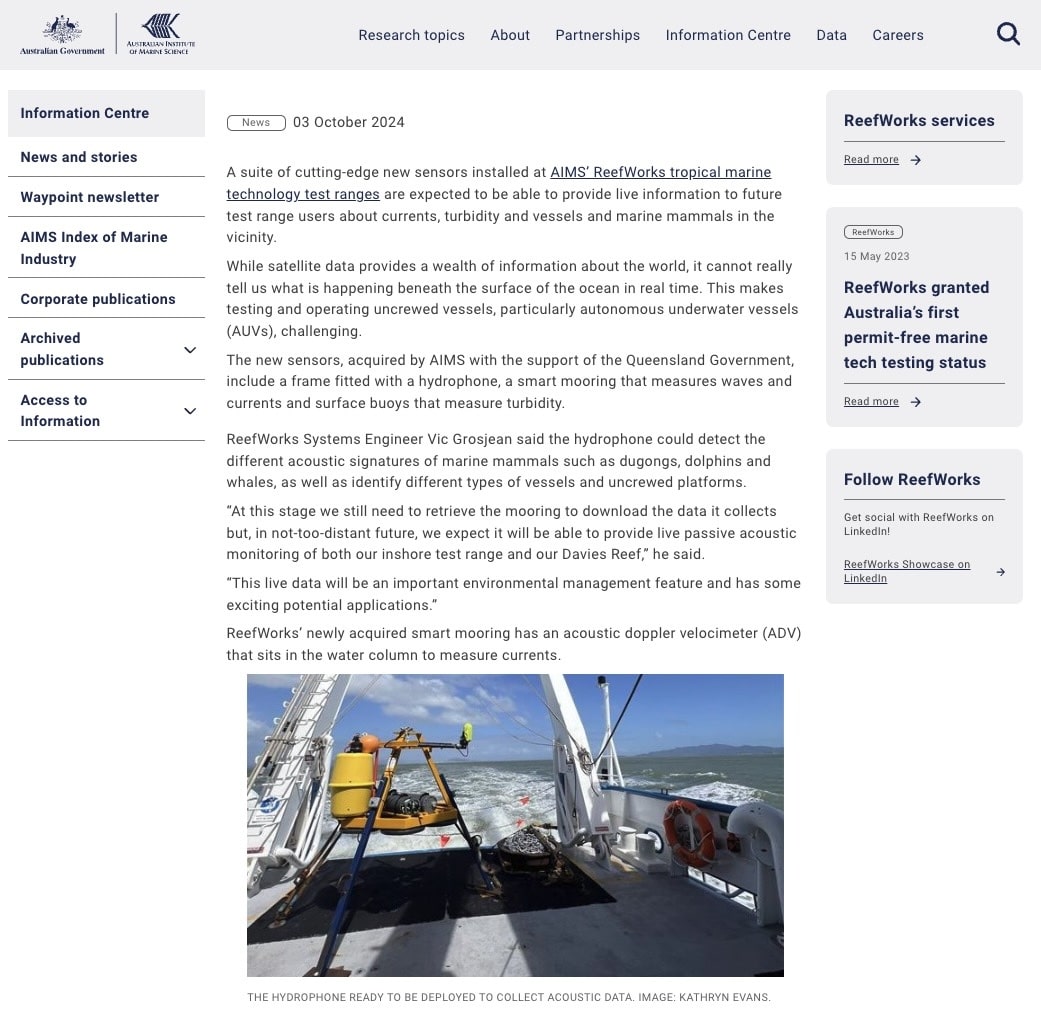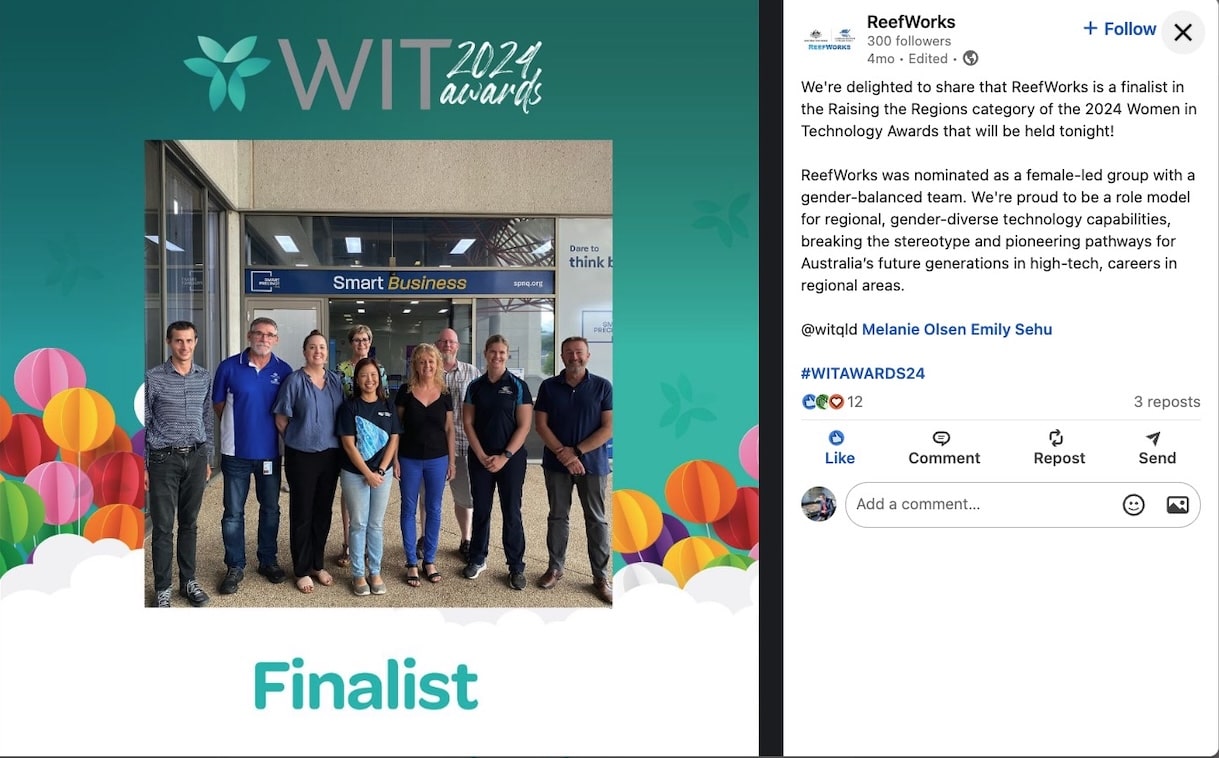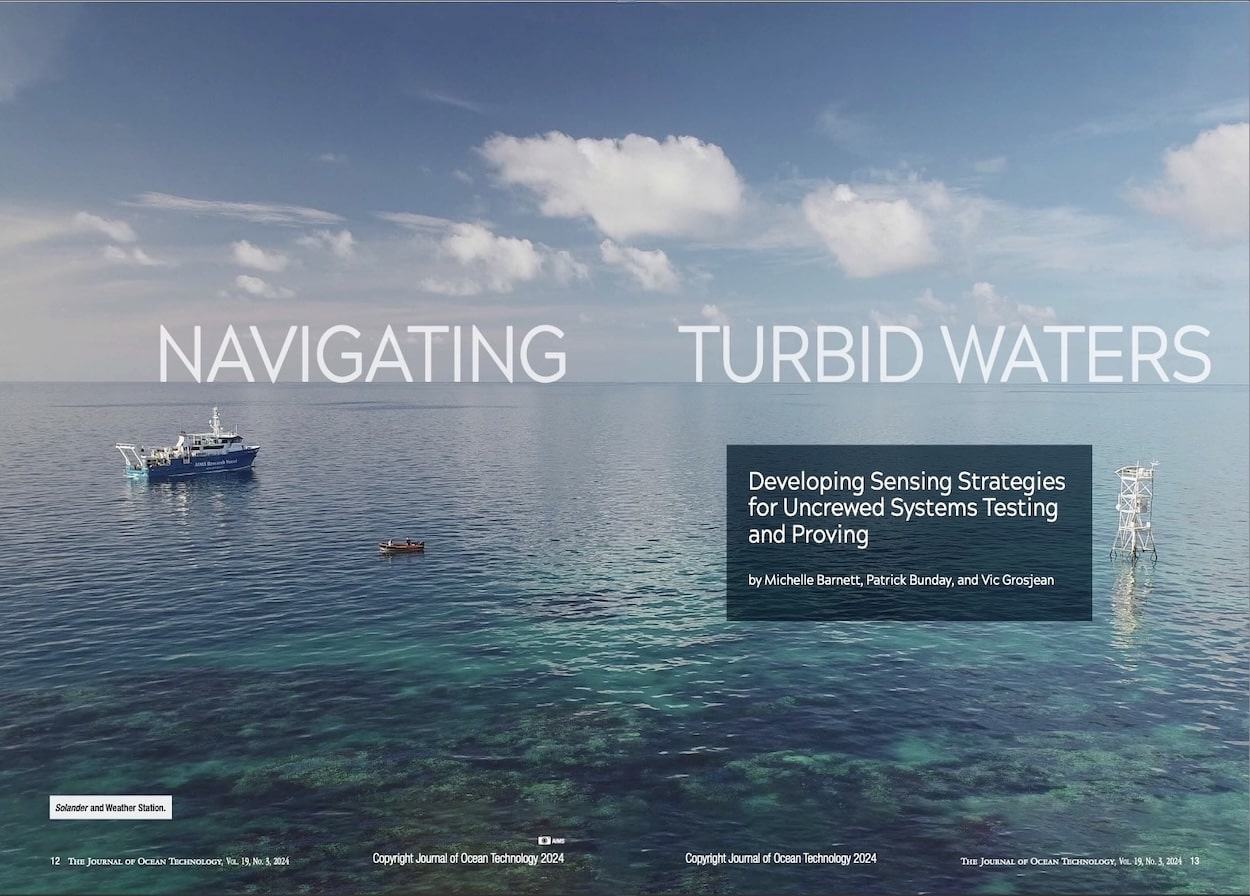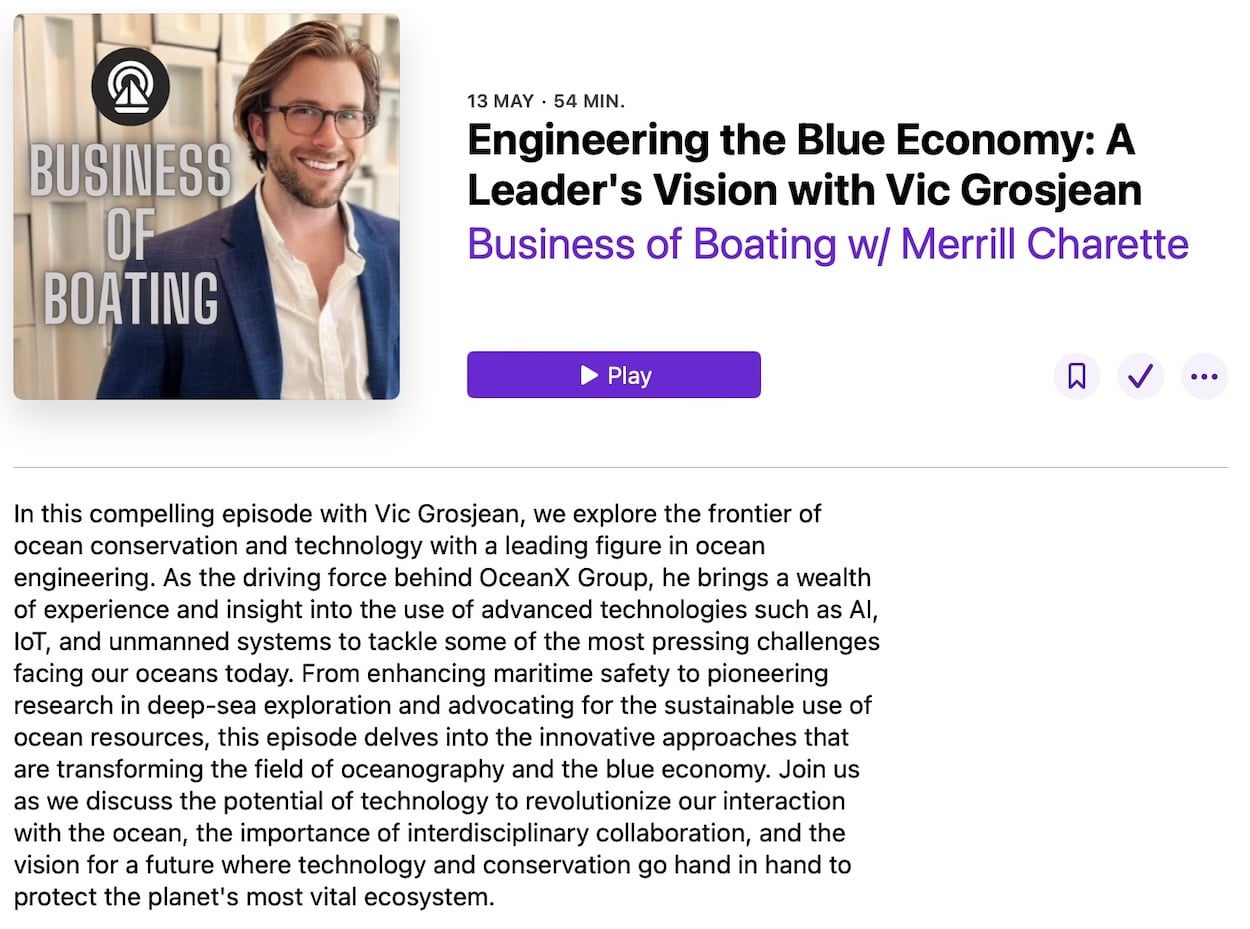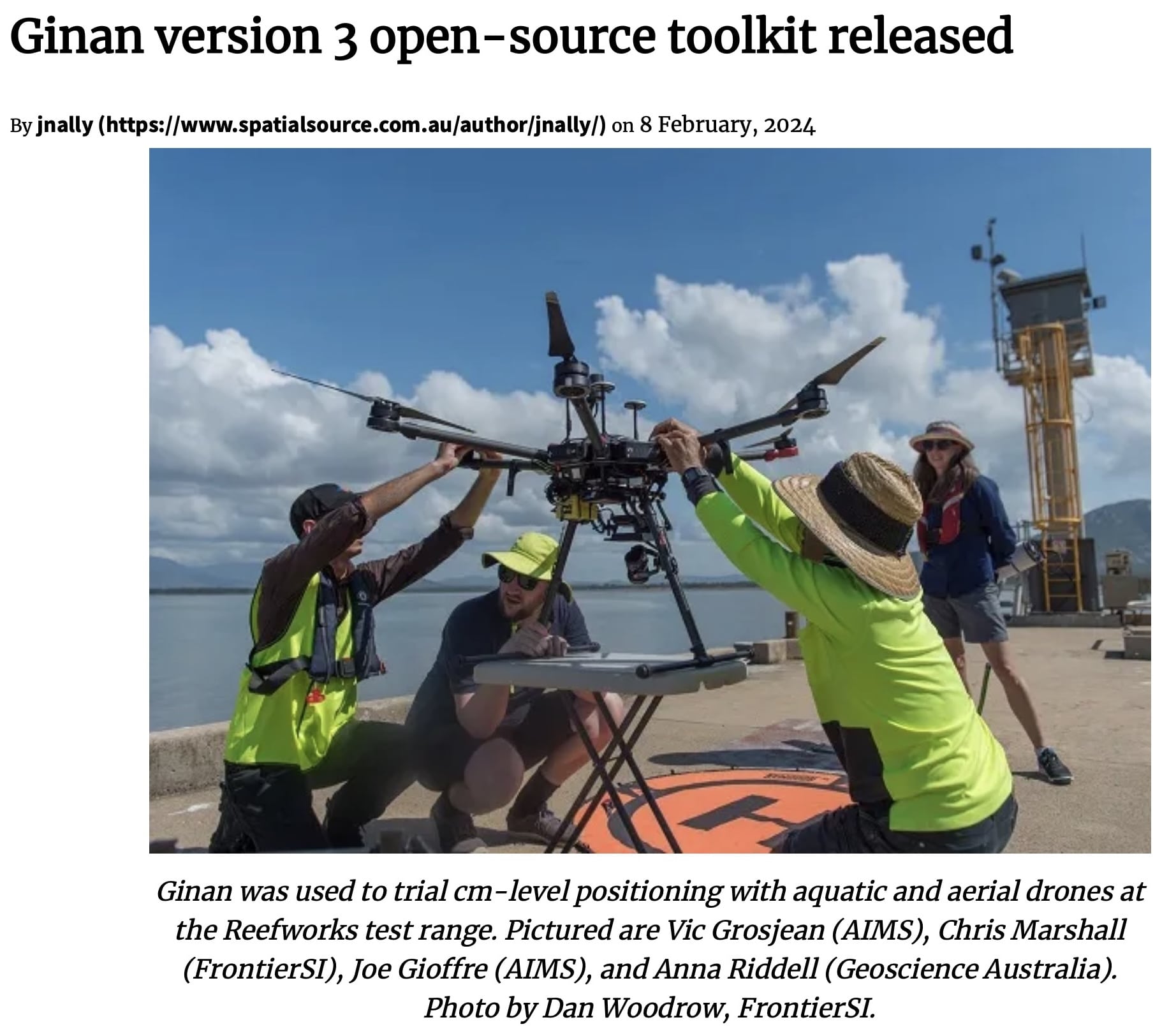| FOR IMMEDIATE RELEASE |
14, May 2022 – Rotarians unite for Mangrove Restoration Projects around Westernport.
Vic Grosjean speaking about Mangrove restoration aboard the Tidemaster on Westernport.
Ian Riseley has been pushing the environment to become an area of focus for Rotary. He inspired Rotarians to plant over 1.2 million trees around the world.
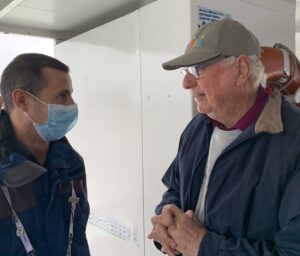
More recently, Rotary International’s Past President Shekhar Mehta commitment at COP 26, highlighted the need to restore our mangroves. And Westernport is the Southern Mangrove in the world.
A Rotary working group is now helping the Westernport Seagrass Partnership (WPSP) to clean up some of our experimental projects on the Western Port Lang Lang coastline. WPSP has for 20 years been trying to establish a protective belt of mangroves on this exposed eroding coastline. The Western Port Seagrass Partnership (WPSP) is an Australian initiative aiming to revitalize the ecosystem of Western Port, Victoria. The substantial loss of mangroves has had a devastating effect on the ecosystem in this area. The United Nations has recognised this loss as an ecological disaster, which was covered in their ‘World Atlas of Seagrass’ case study. The area is classified as a United Nations Biosphere, making it a learning place for sustainable development.
There used to be a thick ‘mattress’ of seagrass in the East Arm of WP which calmed down the waves, therefore, reducing coastal erosion. But the seagrass in this area had all but disappeared in 1970 caused by an increase in sedimentation and urban/farming runoff. Straight drains were put in to drain the Koo Wee Rup and Lang Lang wetlands to produce highly fertile farmland, and farmers used excessive ‘super’, livestock accessed stream banks, all causing excessive sedimentation smothering, and cutting off required sunlight for the seagrass.
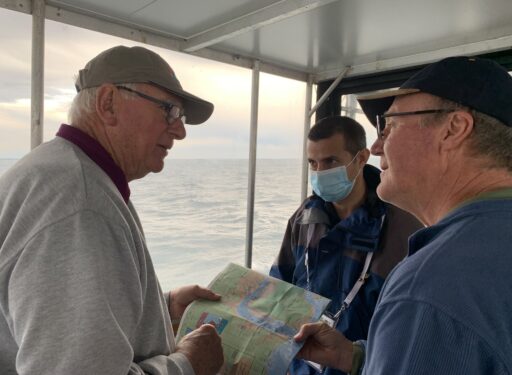
CSIRO figures today are still 60,000 tons/year of sediment in the East Arm, 20,000 from the drains, 20,000 from coastline erosion, and 20,000 from resuspension.
Melbourne Water is doing great work on sedimentation traps in the drains, farmers are not wasting money on excessive fertilizer, Landcare groups are assisting with fencing and planting along streams, and WPSP, Melbourne University and other groups are working on re-establishing a protective line of mangroves along the coast.
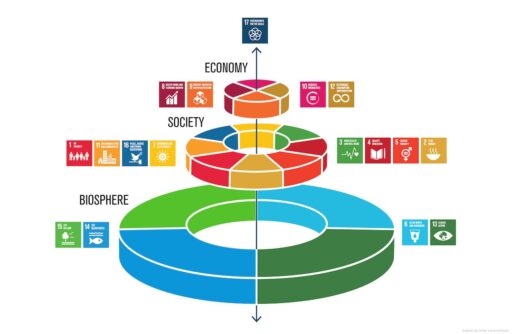
Western Port (and Corner Inlet) are the southernmost limit of mangroves with only one species (20 plus in Queensland and the tropics) which is slow growing so it takes a few years to see whether an experiment is sustainable. The experiments that have been tried over the years are too long to explain here but we are now ‘tying’ seeds to stakes to help them establish. In nature seeds drop off mature trees in December/January most years (but not every year, we do not know why it is not every year), they float away until they find a ‘quiet’ spot to put down their root and send up a shoot and if the waves don’t wash them out, barnacles don’t smother them, sediment doesn’t smother them or ‘man’ doesn’t pull them out (the later happens in a few areas!) they will grow and produce seeds in about 6 years and spread out calming the waters.
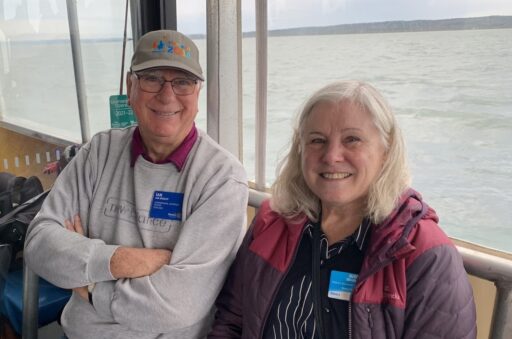
The boat trip on the Tidemaster took 40 people around the north part of Western Port. A group of Rotarians enjoyed a boat trip in May to view some of the progress the working group has undertaken and better understand the importance of mangroves.
The Western Port Seagrass Partnership is taking advantage of this and working hard to re-establish a protective line of mangroves and seagrass that will serve to protect the coastline from erosion.
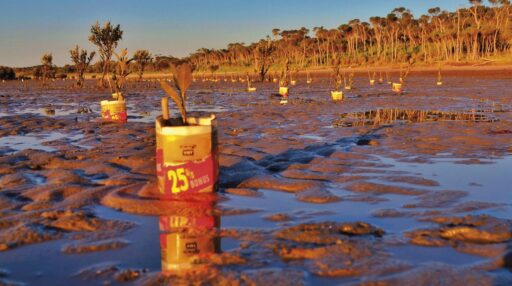
Dick Cox of the Rotary Club of Somerville Tyabb, Vic, is spearheading the WPSP. He recently brought together volunteers from the Western Port Catchment to take part in a working bee to assist WPSP clean up the remains of some of the experiments. Rotarians from Berwick, Casey, Mornington, Warragul, and Somerville Tyabb put their hands up to help.
“The working bee was followed up a few weeks later by an enjoyable boat trip across the north arm of Western Port,” Dick said. “There was a great line-up of speakers, including Rotary International Past President Ian Riseley, Vic Grosjean, DG Bill Degnan, CEO of the Western Port Biosphere Mel Barker, and, from WPSP Ian Stevenson, international seagrass expert Hugh Kirkman, and Dr Greg Parry conducting our mangrove experiments.”
Dick says WPSP will continue with their trials, ably supported by Rotarians, with seed collection taking place in December and January, followed by securing the seeds to stakes in areas previously identified.
Key speakers & participants:
- Past RI President Ian Riseley & Juliet
- PDG Bill Degnan & Judy Degnan
- WPSP scientists Hugh Kirkman international expert on seagrass
- Ian Stevenson from WPSP
- Mel Barker CEO of the Western Port Biosphere
- Dr Greg Parry running our mangrove projects
- Paul Macreadie
- Ted Waghorne Chair of #ESRAG Oceania
- Dick Cox of the Rotary Club of Somerville.
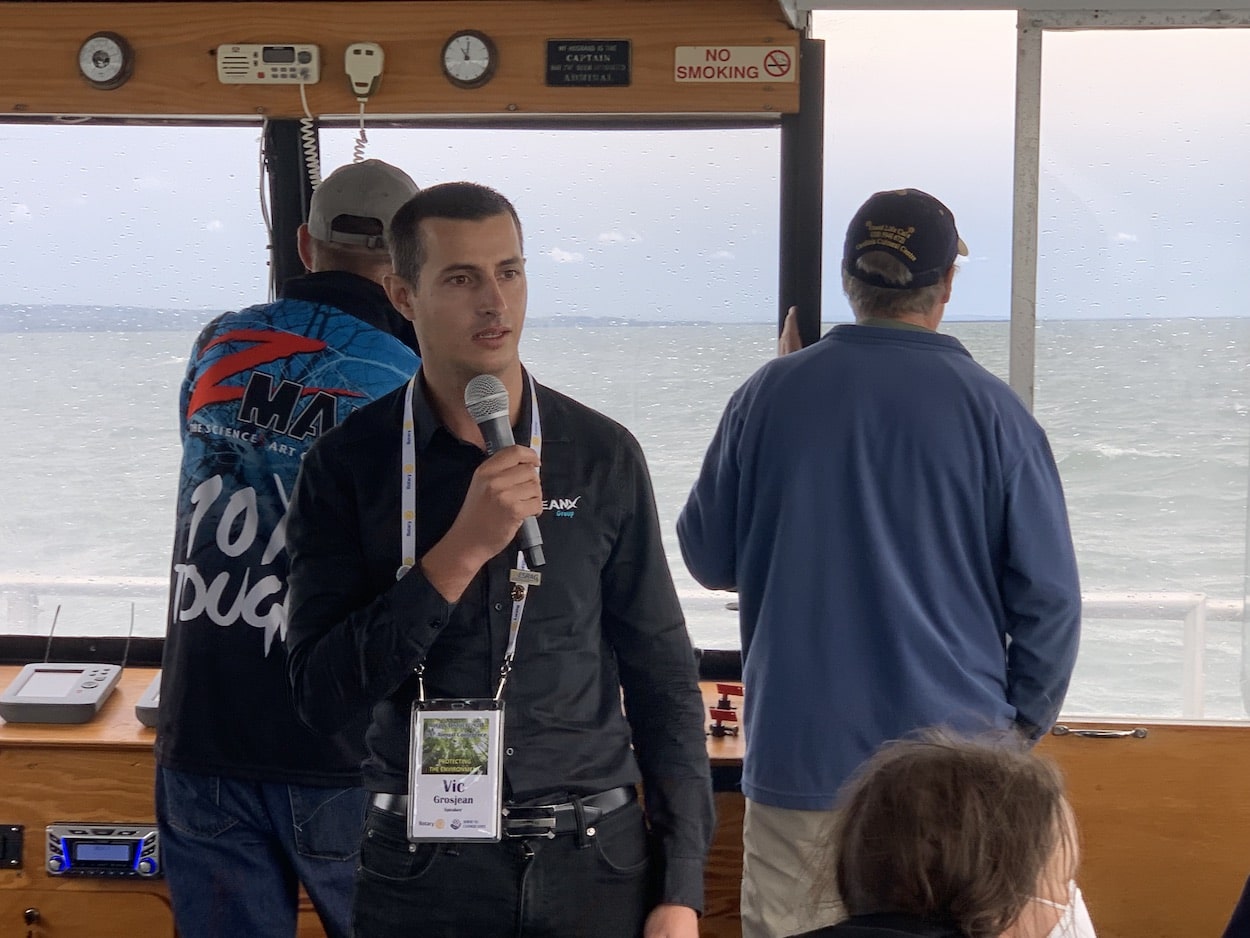
Read more:
‘Restoring the mangroves of Western Port’, In August 2022 (652)Posted August 7, 2022, 14 May 2022, by Jack Campbell, on ‘Rotary Down Under’, How Rotary International Immediate Past President Shekhar Mehta has inspired Rotarians to perform Mangrove restoration in the Southern location of the planet.
- https://rotarydownunder.com.au/2022/08/07/restoring-the-mangroves-of-western-port/
- https://www.facebook.com/WesternPortSeagrassPartnership/
Join the conversation and help us clean our oceans!
#Mangrove, #Rotary, #Public Speaking
